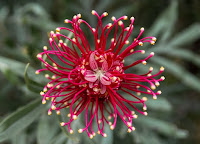Eden Monroe's BWL Author Website
The JW Tanner
Ranch in Gold Digger Among Us was built on Klondike gold.
It was the
fictitious Tanner brothers, Jacob and William, who joined that famous stampede to
the north and beat overwhelming odds to return as wealthy men. Financially set,
they expanded their modest family acreage and realized their dream of being the
area’s biggest outfit, stocking their spread with prime Charolais beef cattle
and fine horses.
The thousands in
real life who sought gold in that almighty rush to the Klondike, unwittingly
helped write one of the most compelling chapters in our history. There were
certainly fortunes earned there, but to accomplish it often took extraordinary
effort. Many prospectors toiled in vain, and the deprivations suffered in that
unforgiving land were legendary; unprecedented hardships experienced in the
search for that most precious of all metals.
As author Pierre
Berton describes in Klondike, the Last Great Gold Rush, 1896-1899, one such
grueling episode took place after countless boats seeking the gold fields were
caught on the river at freeze up, a particularly harsh event for those forced to
backtrack in an exhausting sixty-five mile trek.
“In mid-October
one thousand men, women and children were shivering in tents on the banks of
the Klondike (actual name of river is Thron-diuck, but famously mispronounced),
but by December first some nine hundred had retraced their steps. Scores
attempted to return up the frozen river to the passes, rending their clothes,
shredding their moccasins and shattering their sleighs on the sharp blocks of
ice that were sometimes heaped as high as twenty feet….
“All of this time
the temperature hung at fifty below zero, so cold that any man moving faster
than a tortoise pace felt the chill air sear his lungs. On November 29th
the temperature dipped again to sixty-seven below; so that trees cracked like
pistol shots with the freezing and expanding sap, cooked beans turned hard as
pebbles, and the touch of metal tore the skin from naked fingers….”
Tales of those formidable
Klondike days inspired my Tanner story, and although Gold Digger Among Us takes
place in present day, descendent Dade Tanner is that same breed of rugged men, at
times ruthless, but every inch a Tanner and fiercely proud of it. Men who stay
the course and are not easily tamed. Men who are at one with the land.
“Dade thought
about how good it would feel to take his shirt off as he glanced at the sun
that rose unsparingly above the horizon, fiery orange and punishing over what
was quickly becoming the parched landscape of the twenty-thousand acre JW
Tanner Ranch.
“The overseer of
the entire ranch and its various divisions, he still liked getting out on the
land, and did indeed strip to his waist when working in the hayfields or
swinging a hammer fixing fences, his broad shoulders, well-muscled chest and
powerful forearms tanned to a deep bronze under the summer sun.”
But a chain is
only as strong as its weakest link, and now the very existence of JW Tanner
Ranch is threatened from within by the greed of Virgil Tanner, Dade’s spoiled,
self-indulgent older brother who is fired by that early lust for gold. However there is a striking difference between
him and his industrious forebears because Virgil expects to get rich without
the necessary hard work, and the father, Buck Tanner, is unfailingly blind to
his oldest son’s unscrupulous get-rich-quick scheme.
“Buck shook his
head grimly, obviously disgusted, then getting tiredly to his feet, explained
that he wanted to be alone for a while to think.
“Virgil was
mentally doing the happy dance. Too bad, little brother, you lose. The signing
of the ranch over to him was now just a formality, he could feel it in his
bones. And once everything was in place, he, Virgil Tanner, was going to be one
filthy rich hombre. He had just what he needed in his suitcase to accomplish
it.”
In Gold Digger
Among Us it was gold that built a dream, and like those first Tanner brothers prospecting
in the Klondike, the primal urge for it still captures our imagination. Only
the circumstances of its acquisition has changed, although there still seems to
be plenty of it to supply modern-day needs.
According to the scientific
agency, the United States Geological Survey (USGS), most of the gold fabricated
today is for the manufacture of jewellery, but it’s also an industrial metal used
in any number of items, from computers and communication equipment, to spacecraft
and jet aircraft engines in which this essential element performs critical
functions.
Gold fever will
likely always exist, whether it’s the romantic notion of finding gold nuggets
(the largest single mass of gold ever discovered was the Holtermann Nugget at
10,229 ounces found in 1872 in Australia – geologypage.com), or winning what is
arguably the most treasured of all gold, a wedding ring, there does not seem to
be any danger of it losing its appeal.
Raw gold is present
on every continent in various concentrations, most of what has been found to
date has come from just three countries: China, Australia and South Africa (the
US ranked fourth in 2016), says the USGS. So far “about 244,000 metric tons of
gold has been discovered” in the world, and the unrelenting quest continues….










































